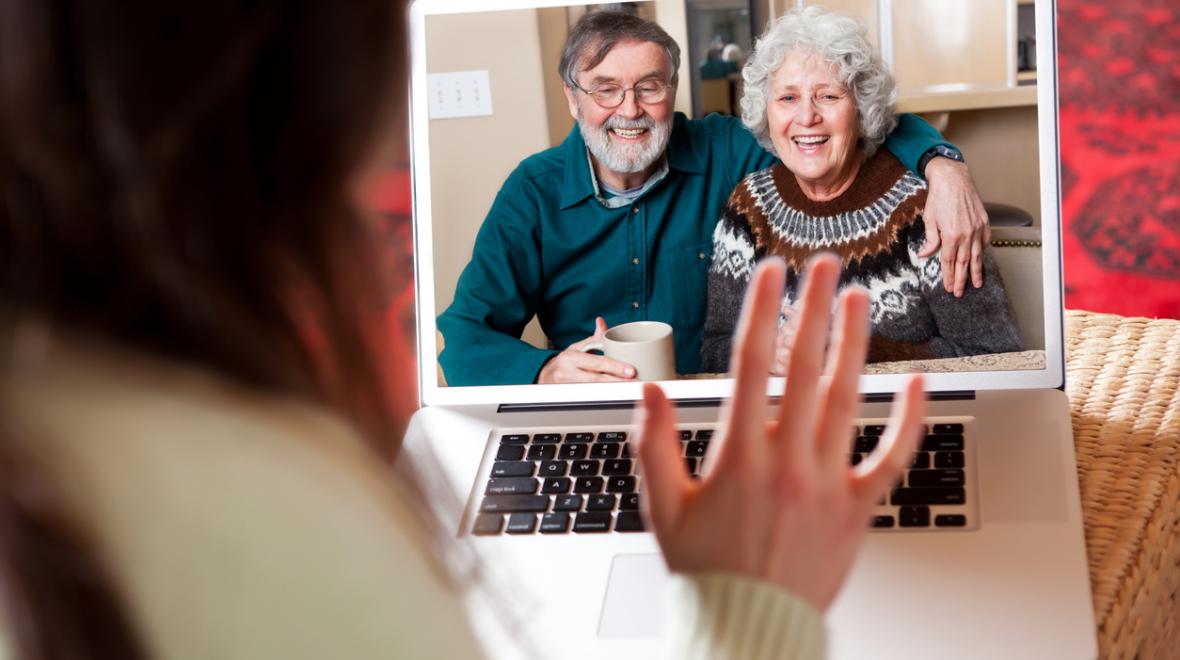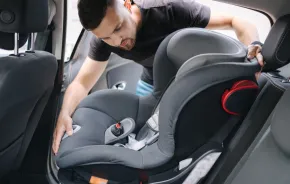
Grandparents, do you know your grandchild’s favorite color, closest friend or what their very favorite activity is? Do you know what brings them joy, sorrow or worry? Most grandparents would say they want to know more about their grandchildren, but they often find their loved ones are too busy to talk or there just isn’t the right setting to ask personal questions. However, with the pandemic stay-at-home orders, now may be the perfect time to connect with your grandchildren in a creative way by doing an interview.
The interview
Often we think of an interview as someone being asked questions for a prospective job or as a reporter asking questions for the news. But if we broaden the idea to include asking a loved one questions in order to get to know them better, we are doing an interview.
Not all interviews look the same. They can be carried out over Zoom or Facebook, over the telephone, through email or in letters exchanged with your grandchild. The interview can happen all at once or be an ongoing process that happens every few days to every couple of weeks. The format can be as formal as you like. And of course grandchildren get to reverse roles and interview the grandparents!
1. Grandparents interview first
The first consideration is the age of each grandchild. You can interview a 3-year-old by asking concrete questions that cover things such as favorite color, food, game, etc. Preschoolers can also relate to emotions, so don’t hesitate to explore their feelings. You never know what you will get! Grade-school-age children may be the easiest to interview because they know themselves better and are generally not afraid to share information. Tweens and teens will have the most in-depth answers if they feel safe opening up to you. Start slowly with all age groups and see where it goes.
Do kids like to be interviewed? Ask yourself whether people like to talk about themselves and have others really listen to them. The answer to this question is yes for almost everyone. Kids are no exception. Just be sensitive to how long your grandchild seems interested in the activity and do what you can to make it fun. The interview may last a few minutes or much longer depending on the age and mood of the child.
Start by saying you want to try a fun question-and-answer game. Or maybe you could say you want to learn more about their stories and their likes and dislikes, and then they will get to ask the same of you. You could even play it up by wearing a reporter's hat and using a notebook or microphone. Remember that reporters are there to collect information, not to judge or comment on the responses.
Open-ended questions will allow the interview to go lots of directions. Starter questions could include:
- What is your favorite game/color/food/activity/movie/book/etc.?
- Who is your best friend? What do you like most about them?
- Do you like school? What are your favorite and least favorite subjects?
- If you could be an animal, which would it be? Why?
- If you could choose anything you wanted to do today, what would it be?
- What’s your favorite family story?
- Imagine that you are grown up like Mom and Dad — what do you want to be?
- I would love to hear about the time that [fill-in-the-blank family story]. Can you tell me more about it?
- What's something you're really good at? Will you show me?
- What makes you happy/sad/mad/worried/etc.?
Don't be in a hurry to get to the next question. If your grandchild starts to tell you a full answer, encourage them to tell you more. Your job is not to get through your list of questions, but to allow you and your grandchild to get to know each other better. You could even compile their answers in a book for them to read later. Be sure to judge when they stop being engaged. A few minutes may be all you get for the first few interviews.
2. Reverse roles
Encourage your grandchild to interview you. Perhaps they want to know crazy family stories, what you and your siblings used to fight about, or tales of the worst family vacations ever. They may want to prepare their own interview questions before talking to you. Kara Baskin, a correspondent to the Boston Globe, recommends thinking in terms of hyperbole, disaster, and good guys versus bad guys. She says kids want stories about people they know and things they can relate to. Kids also love to hear stories about what their parents were like as kids. Show them old family photos to get the discussion going.
Here are some interview ideas for them to ask you:
- Tell me about some of your favorite/worst family vacations with Mom/Dad.
- What was my mom/dad like when she/he was my age?
- What’s the worst thing you ever did?
- Did you ever have to go through something like a pandemic or a war?
- Were you ever really worried about something? What did you do?
- What did you do for fun when you were my age?
- Did you have pets when you were growing up?
- Did you ever have a nickname?
- What was your first job? Your first car?
- How did you meet Nana?
These interview ideas are just in case your grandchildren get stuck on what to ask you. Chances are that they will relish being able to ask you absolutely anything and get a thoughtful answer.
Interviewing is a unique method of connecting from a distance and learning more about your grandchildren at the same time. Given that most of us have extra time on our hands right now, this may be the perfect period to start the interview process with your grandchildren. It may even become a family tradition and something to be written down as family history. So get your reporter cap on and go get the scoop on your most cherished people!
This article was originally published on DrSallyB.com and was reprinted with permission.











